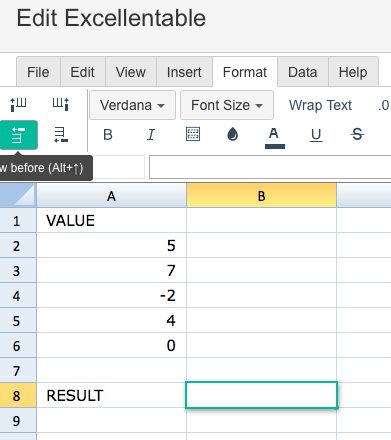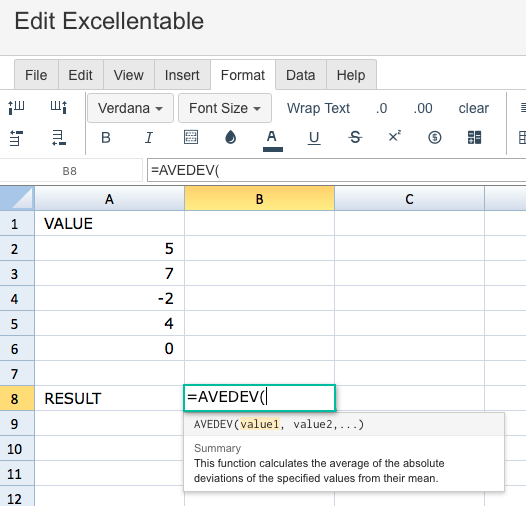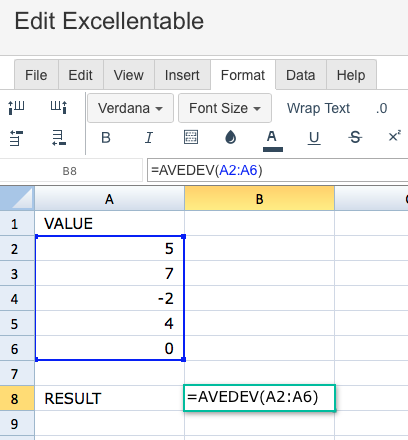AVEDEV
Definition/Description of Formula:
Calculates the average of the magnitudes of deviations of data from a dataset's mean.
Syntax:
AVEDEV(value1, value2, ...)
value1- The first value or range of the sample.value2, ...- Additional values or ranges to include in the sample.
Notes:
- If the total number of values supplied as
valuearguments is not at least two,AVEDEVwill return an error. AVEDEVwill ignore any text values invaluearguments.- The average deviation is the sum of the absolute values of the difference of each data point and the mean of the dataset, divided by the number of elements in the dataset.
Step 1: To use the AVEDEV Formula, simply begin with your edited Excellentable:

Step 2: Then begin typing the AVEDEV formula in the area you would like to display the outcome:


A
|
B
|
|
|---|---|---|
1
|
||
2
|
||
3
|
||
4
|
||
5
|
||
6
|
||
7
|
||
8
|
See Also:
VARPA: Calculates the variance based on an entire population, setting text to the value `0`.
VARP: Calculates the variance based on an entire population.
VARA: Calculates the variance based on a sample, setting text to the value `0`.
VAR: Calculates the variance based on a sample.
STDEVPA: Calculates the standard deviation based on an entire population, setting text to the value `0`.
STDEVP: Calculates the standard deviation based on an entire population.
STDEVA: Calculates the standard deviation based on a sample, setting text to the value `0`.
SKEW: Calculates the skewness of a dataset, which describes the symmetry of that dataset about the mean.
DEVSQ: Calculates the sum of squares of deviations based on a sample.
KURT: Calculates the kurtosis of a dataset, which describes the shape, and in particular the "peakedness" of that dataset.
